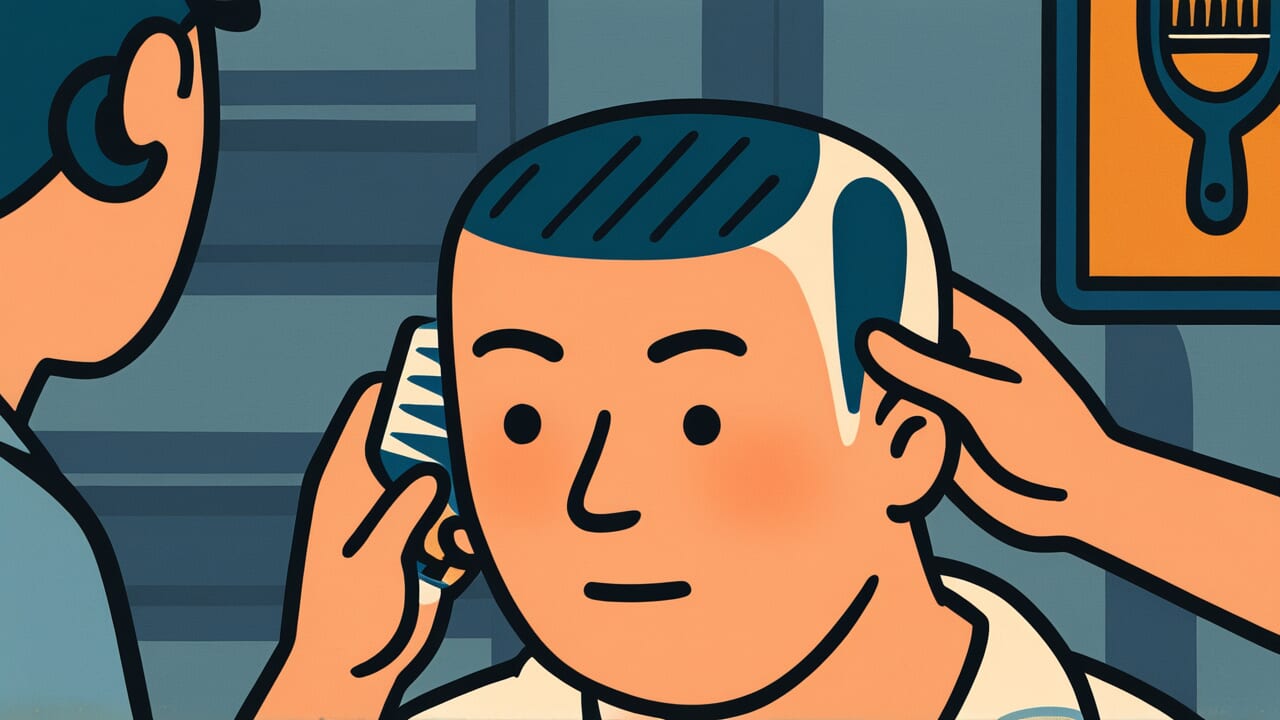How to Read “Shave your heart rather than shave your head”
Atama soru yori kokoro wo sore
Meaning of “Shave your heart rather than shave your head”
This proverb means that purifying your inner self and spirit is more important than fixing your appearance or following formalities.
It teaches us not to be satisfied with superficial changes. Instead, we should focus on improving what truly matters inside us.
People use this saying when someone cares too much about appearances but lacks substance. It also applies when someone focuses only on formal actions while losing sight of what really matters.
For example, imagine someone who memorizes all the rules of etiquette but has no genuine care for others. Or think of someone desperately chasing credentials and titles while forgetting to develop real skills and character.
In modern times, this applies to people who work hard to create perfect social media posts but neglect their actual lives and relationships.
This proverb asks us what truly matters. It teaches that our inner character, not our outward appearance, determines our real value as human beings.
Origin and Etymology
The exact source of this proverb is unclear. However, it likely comes from Buddhist teachings about the true nature of spiritual practice.
In Buddhism, people who become monks undergo a ceremony called “head shaving.” They shave off all their hair as a symbolic act.
This represents cutting ties with the secular world and beginning a new life as a spiritual practitioner. But simply shaving your head doesn’t make your heart pure.
What truly matters is removing the impurities of the mind. These include worldly desires and attachments.
The word “shave” carries two meanings here. Physically, it means cutting off hair. Spiritually, it means cutting away what you don’t need.
Shaving your heart means removing desires, anger, jealousy, and other impurities. It means keeping your mind clean and pure.
This proverb likely arose as a warning against human nature. People often feel satisfied just by fixing their outward appearance.
Changing how you look is easy. Changing who you are inside is hard. But true spiritual practice means walking that difficult path.
This Buddhist teaching is condensed into these few simple words.
Usage Examples
- He only cares about his appearance, but “shave your heart rather than shave your head” – he should focus on becoming more sincere
- She’s obsessed with getting certifications, but as they say, “shave your heart rather than shave your head” – she should first improve her attitude toward work
Universal Wisdom
Humans tend to feel satisfied with visible changes. When we change our hairstyle, buy new clothes, or rearrange our room, we feel like we’ve become someone new.
But this proverb points to a deeper truth. What really needs to change is not the outside but the inside.
Why are people drawn to changing their appearance? Because it’s easy and the results are immediate.
Go to a salon and in a few hours you meet a new version of yourself. But changing your heart isn’t so simple.
Facing your flaws, breaking bad habits, and adopting new values takes time and effort. It can be painful too.
That’s why people escape into formalities. Dress like a monk and you feel like a monk. Get an impressive title and you think you’ve become impressive.
But our ancestors saw through this human weakness.
This proverb has survived through generations because human nature doesn’t change with time. Even today, we avoid the difficult path of genuine growth.
We settle for easy changes in appearance and feel satisfied with ourselves. But true value lies in how much you polish yourself when nobody’s watching.
When AI Hears This
The human brain has a “balance sheet of effort cost versus sense of achievement.” This creates an interesting illusion.
Shaving your head takes 30 minutes and you can instantly see the change in a mirror. The brain processes this “visible change” as “proof of great determination.”
It then releases a reward in the form of satisfaction.
Cognitive dissonance theory explains this well. People can’t tolerate the contradiction between “deciding to become a monk” and “actually being immature inside.”
So the brain automatically creates the logic “I shaved my head = I’m already a monk.” This lets people look away from the truly difficult task of inner change.
Psychologist Festinger’s experiments showed something interesting. People paid $1 to do boring tasks said “this was fun” more than people paid $20.
In other words, the smaller the action, the harder the brain works to justify it as meaningful.
Modern society has the same trap everywhere. Pay a gym membership fee and feel like you’ve lost weight. Buy a business book and feel like you’ve grown.
These are all cases where the brain mistakes “visible, easy actions” for “essential change.” The quick-acting painkiller of formality postpones the fundamental treatment of substance.
Lessons for Today
Modern society values appearance and formality more than ever before. Social media overflows with perfect-looking photos.
Education, credentials, and titles are used as measuring sticks for human worth. In this environment, this proverb asks us an important question.
Are you truly polishing what matters?
Of course, taking care of your appearance and earning credentials isn’t bad. But if that’s all you do, it means nothing.
You might have impressive titles, but without a caring heart, people will leave you. You might maintain beautiful looks, but with a poor inner life, you can’t build deep relationships.
This proverb teaches us about priorities. Polish your heart first. Sincerity, humility, compassion, gratitude.
Cherishing these invisible qualities will ultimately enrich your life.
You can start today. Before posting on social media, value your real relationships. Before studying for credentials, face your current work sincerely.
Before worrying about appearance, be kind to people. Small steps will make your inner self shine.



Comments